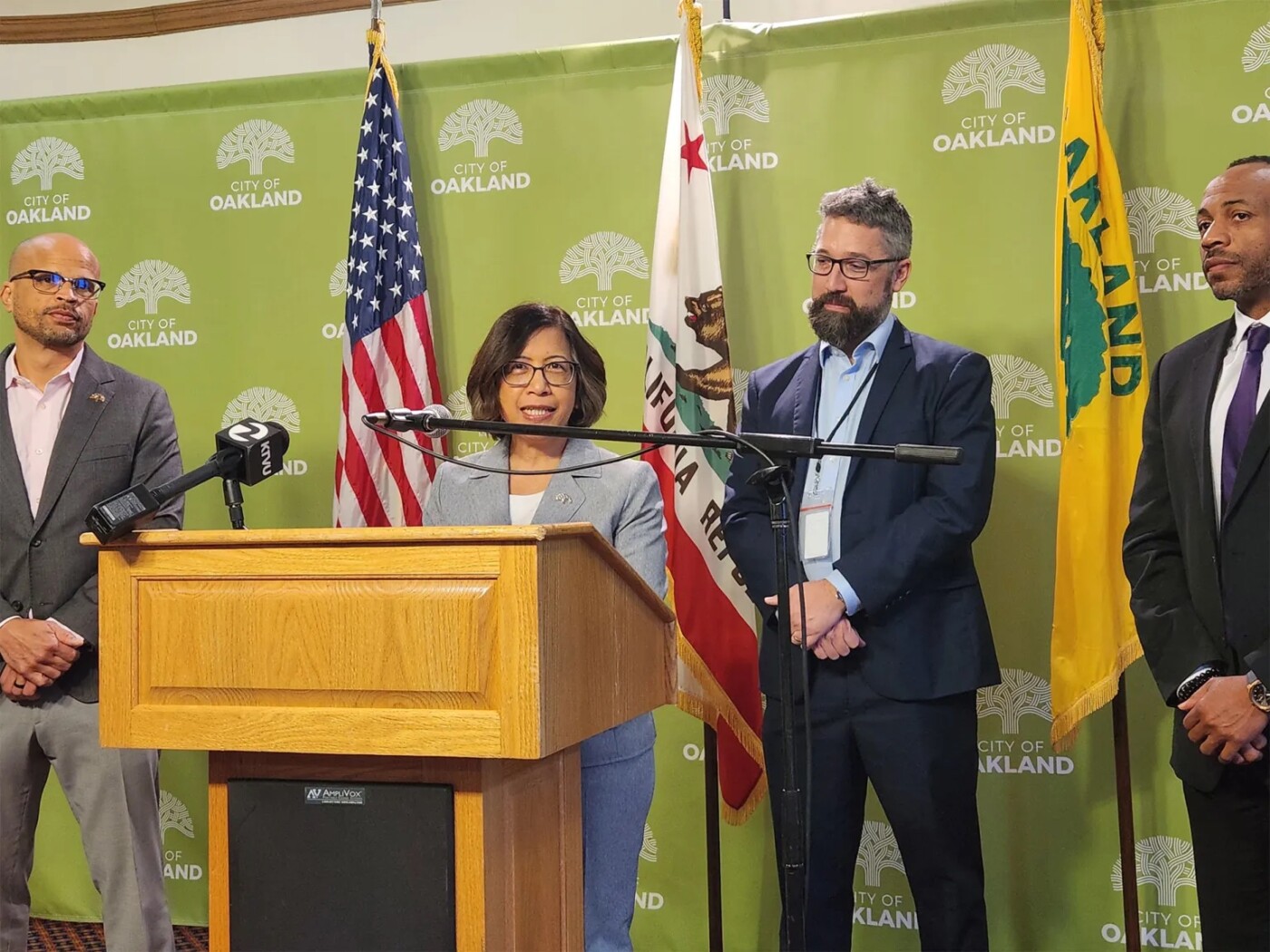The complicated series of events required to select a new Oakland mayor after voters last month recalled Sheng Thao is gaining speed and will progress with transparency, according to City Council President Nikki Fortunato Bas.
Bas has been working with City Attorney Barbara Parker and other senior city staffers to ensure “a transparent, responsible and orderly transition of leadership,” she said during a news briefing at City Hall on Wednesday morning.
“And I also want to say very clearly that continuity and stability is critical during this time of transition,” Bas said. “Oakland residents deserve for all of us to come together, for our leadership to be strong and effective, to be focused on our fiscal responsibility, safe communities, as well as our other ongoing priorities.”
Earlier this week, Parker released a legal opinion, based on the city charter, that’s intended to guide city leaders as they work through the transition process, which is expected to begin in earnest on Dec. 17.
That is when the City Council is expected to accept the results of the Nov. 5 election, declare the mayoral seat vacant and appoint the council president, currently Bas, as Thao’s temporary replacement.
The council will also appoint Councilmember Dan Kalb as the new council president.
Like a game of musical chairs
The procedure is complicated, however, by the fact that Bas is leaving the council after winning the November election to replace Keith Carson on the Alameda County Board of Supervisors.
That’s why, and because she will then be interim mayor, the council is expected to declare her District 2 council seat vacant and set a special election for April 15 to replace both Bas and Thao.
The winners of those contests, however, will only serve until both women’s current terms expire on Jan. 4, 2027, which means both seats will again be up for grabs in the next regularly scheduled election.
Because Bas’ seat will be vacant, the council at its Jan. 6 meeting is expected to both swear in the three new, incoming council members and vote to appoint someone to temporarily take her place on the dais.

At that same meeting, councilmembers will also vote to select a new council president, who will then replace Bas as mayor, and a new president pro tempore, who will stand in as council president until the April election.
Another potential wrinkle in the succession plan, however, is the fact that Bas won her election to the Board of Supervisors by just 425 votes out of nearly 142,000 cast.
If her opponent, Emeryville City Councilmember John Bauters, decides to ask for a recount, Bas won’t immediately take her county seat and would remain mayor until the recount is done or a new mayor is elected in April.
It would also mean that Oakland would likely have to schedule and pay for two separate special elections — one to replace Bas and another one to replace Thao — since the timing of the recount wouldn’t allow for a consolidated special election.
Bauters didn’t immediately respond to a request for comment.
Seeking a caretaker
The process to select a temporary replacement for Bas is also somewhat murky, as there is no official application or interview protocol enshrined in the city charter.
Bas didn’t name any potential preferences for her replacement Wednesday but said she’d do so prior to the Dec. 17 meeting. She also said she expects whoever it is be a “caretaker” for the district who can serve the community “as well as fully participate in the budget process.”
That process is currently dominated by a roughly $115 million one-year budget shortfall that, when added to the money required to restore its emergency reserve fund, will require a total of about $143 million to erase.
The post It’s complicated: Oakland city leaders weigh process for replacing mayor, filling vacancies appeared first on Local News Matters.
